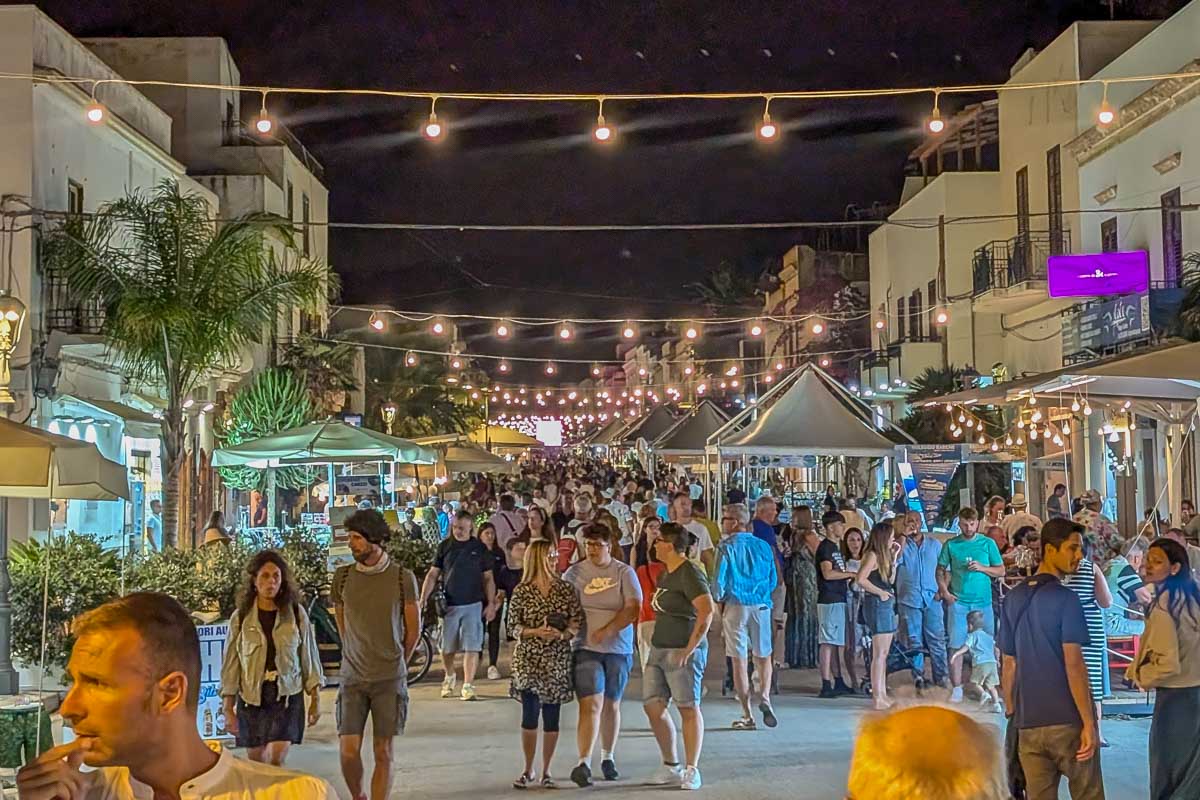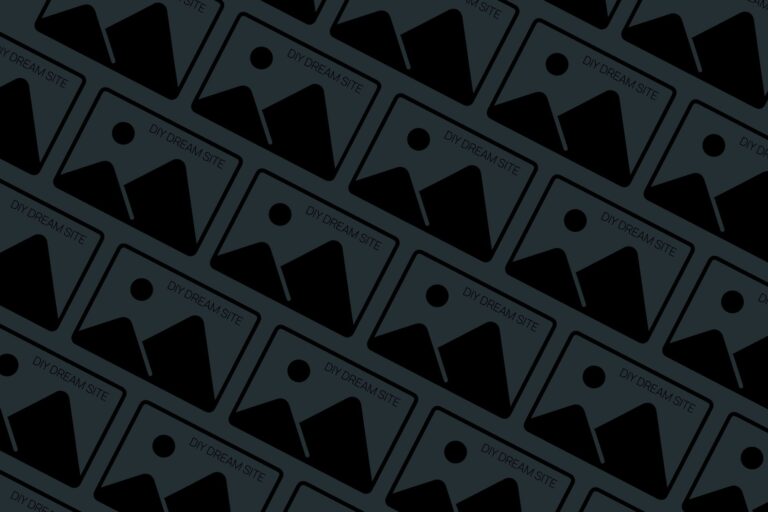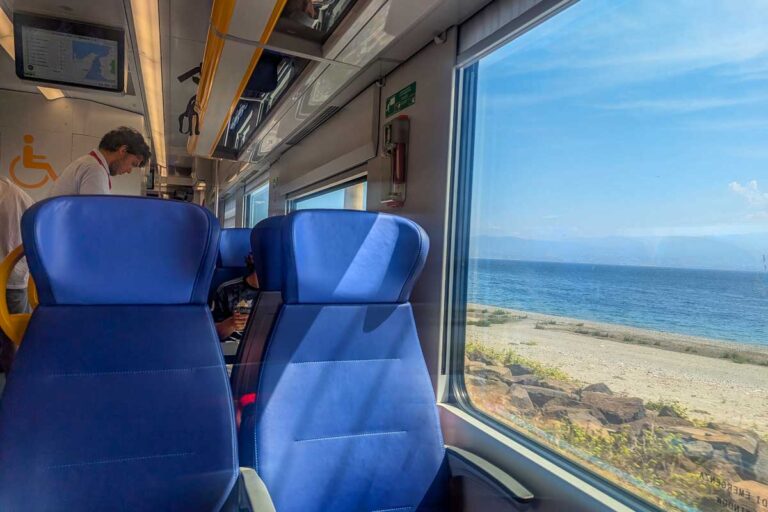European Tourist Scams to Watch Out For
Heading to Europe but worried about falling foul of scams? Relax, because we’re here to help.
Europe is one of the world’s top travel destinations, and with good reason! But where there are tourists, there are scammers looking to take advantage. From fake petitions in Paris to “free” roses in Rome, tourist scams can pop up when you least expect them.
Luckily, most scams are easy to avoid if you know what to look for. In this guide, we’re breaking down the most common scams in Europe, how they work, and what you can do to protect yourself. A little preparation can save you a lot of stress and help you enjoy your trip with confidence.
How Common Are Tourist Scams in Europe?
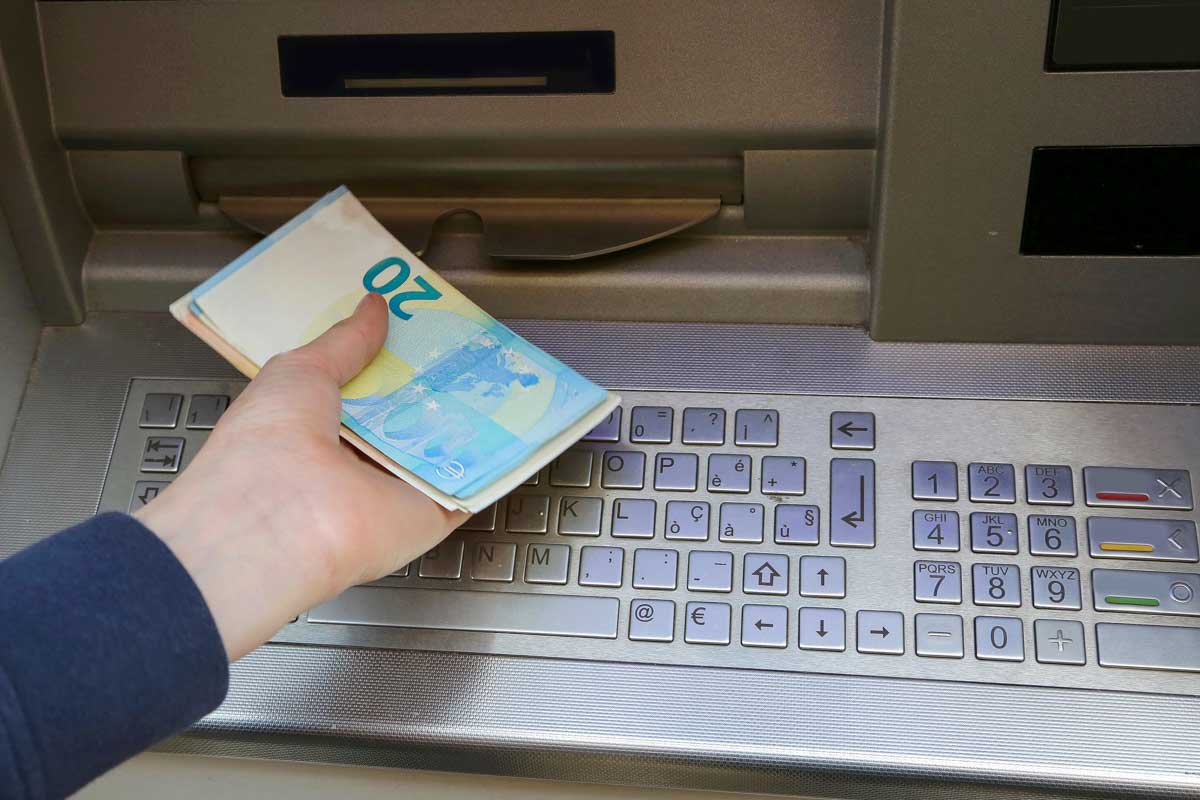
Unfortunately, tourist scams are quite common in major European cities. This doesn’t mean that it’s not safe to travel, but crowds of distracted travelers are easy targets for petty criminals. Cities like Rome, Paris, Barcelona, and Prague are hotspots simply because they’re such popular travel destinations. In that vein, you’ll often see that these scams mostly play out in busy areas like train stations and public squares, as well as outside popular landmarks such as the Eiffel Tower or the Colosseum.
The good news is that most scams are non-violent. Scammers rely on distraction, confusion, and social pressure rather than physical force. It might be someone offering you a “gift” only to demand payment, or a fake petition while an accomplice pickpockets you. It’s rarely about aggression and more about catching you off guard. You don’t need to be scared, you just need to be alert!
We’ve found that awareness truly is the best defense against tourist scams, which is why we’ve written this guide to teach you how they work so that you’ll be far less likely to fall for one. Knowing what to expect helps you recognize a red flag before it turns into a problem.
Scammers rely on the same tricks time and time again, so once you know what to look out for, you’ll be one step ahead. Keep on reading so that you can focus less on worrying and more on enjoying everything Europe has to offer!
10 Common Scams in Europe
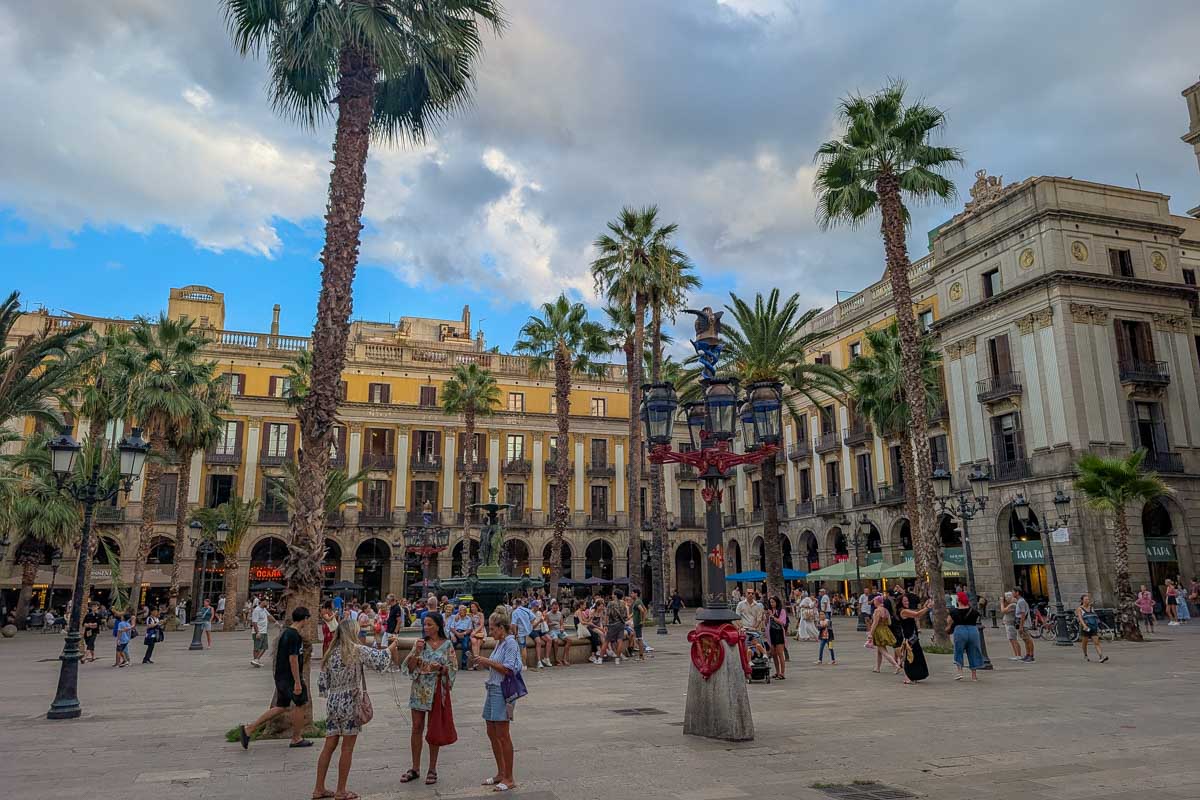
No matter how experienced or cautious you are, anyone can be targeted by a scam, especially in busy tourist areas where you already feel a bit overwhelmed. Scammers are skilled at spotting vulnerability, whether you’re jet-lagged, lost, or distracted by a beautiful view!
Still, once you know how the most common scams work and what to do if something feels off, you can avoid becoming a victim. Awareness is your best defense, and with the right knowledge, you’ll be able to enjoy your trip with confidence. It really is easy to avoid tourist scams when you know how, so stick with us and we’ll show you how.
1. The “free gift” scam

- Most common in: Italy, France, Spain, Greece
- How it works: A stranger approaches you and hands you something, claiming, “It’s a gift”. Once you accept it, they demand payment—sometimes aggressively.
- How to avoid it: Don’t accept random gifts from strangers; firmly say “No” and walk away.
This scam is incredibly common in touristy areas across Europe. I first experienced it outside the Sacre Coeur in Paris, and it happens a lot in cities like Rome, Florence, and Athens, too. It usually starts out innocently enough, with someone handing you a trinket (such as a rose or a bracelet) and telling you, “It’s a gift!”
Then, as soon as you accept, the scammer will begin to demand money. They often do this loudly and aggressively to draw attention and pressure you into paying. If you try to walk away without paying, they may follow you, make a scene, or guilt-trip you in front of others. It’s a very uncomfortable situation, which is exactly what they’re banking on.
In some cases, they’ll tie a bracelet onto your wrist so quickly you don’t have time to react, then insist you owe them money. This is what happened to me in Paris!
The best thing you can do to head the scam off early is to keep your hands close to your body and avoid anyone coming towards you with what might be a “free” gift. But if you do accidentally accept the item and then realize what’s happening, don’t panic. Just place the item on the ground and walk away. If they call after you, try to ignore them and they’ll quickly move onto somebody else—remember, you don’t owe them anything!
2. The fake petition scam
- Most Common: France, Italy, Germany, Spain
- How it works: Someone approaches with a petition for a good cause. While you’re signing it, an accomplice pickpockets you.
- How to avoid it: Ignore them and walk away. Don’t carry anything valuable in your pockets—use a crossbody bag or money belt.
The fake petition scam is one of the most common tourist tricks in Europe, especially near major attractions like the Eiffel Tower, the Colosseum, and central plazas. It usually involves a group of young girls or teenagers, but it can be anyone!
The scammers will approach you with a clipboard and ask you to sign a petition “for a good cause.” They might act sweet, claim to be deaf or part of a charity, and pressure you into signing.
While you’re distracted reading or signing, an accomplice may quietly pickpocket you, or they may demand a donation once you’ve signed and become aggressive if you refuse.
You’ll see this often in busy tourist spots. On my last visit to Paris, there were people with clipboards everywhere around the Eiffel Tower. We were approached several times and simply ignored them each time. The key is not to engage and just walk away.
And of course, it’s also important not to carry valuables in your pockets. Pickpockets are quick and skilled, especially in crowds. Always use a crossbody or anti-theft bag that zips securely, and wear it in front of you. If someone insists you sign something, it’s almost always a scam, so avoid eye contact, keep moving, and stay alert.
3. Fake ticket & tour sellers
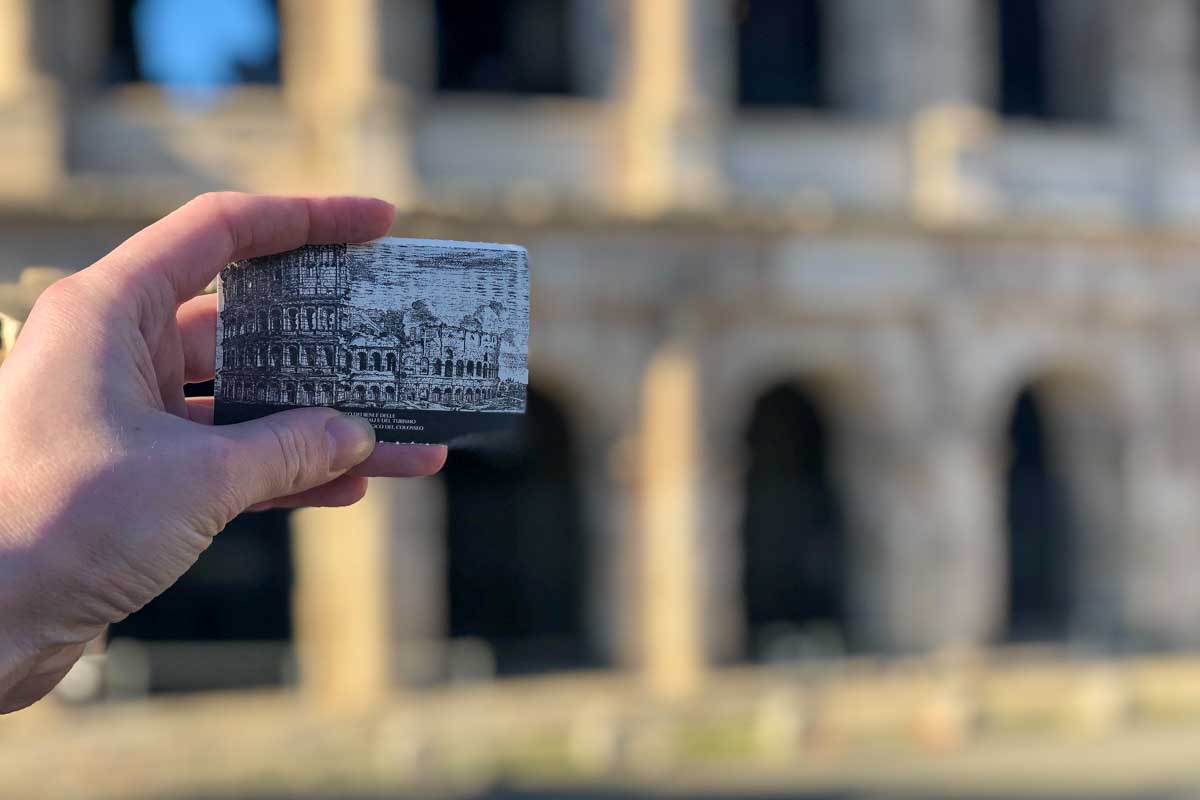
- Most Common: Near any popular attraction (Ex. Eiffel Tower, Colosseum, West End theatre shows), train stations
- How it works: Scalpers sell fake or overpriced tickets.
- How to avoid it: Buy tickets only from official websites or trusted vendors.
In busy tourist hubs across Europe, you’ll often find people selling tickets near popular attractions, but they’re usually not to be trusted! This is especially true outside major landmarks like the Colosseum, the Eiffel Tower, or West End theatres. Often, scalpers will claim that they have great last-minute deals or “skip-the-line” access, but often these tickets are fake, expired, or outrageously overpriced.
That’s why we always buy our attraction and tour tickets online in advance through Viator. It’s a trusted platform owned by TripAdvisor, and we’ve been using them for years, in Europe and beyond! We love the fact that you can read and compare tour reviews to confirm that an experience is legit before booking. Viator also offers a lowest price guarantee and will even refund you the difference if you find a better price elsewhere, which gives us peace of mind that we’re not overpaying.
For public transportation, we only purchase our train and bus tickets through Omio. This is a reliable online retailer that works with major rail and bus operators across Europe. It’s simple to use, and you can view schedules, compare prices, and secure your tickets without worrying about getting scammed at the station.
We always avoid buying tickets from street vendors or unofficial websites. Stick to trusted platforms and you’ll save money, time, and a lot of potential hassle.
4. The distraction scam
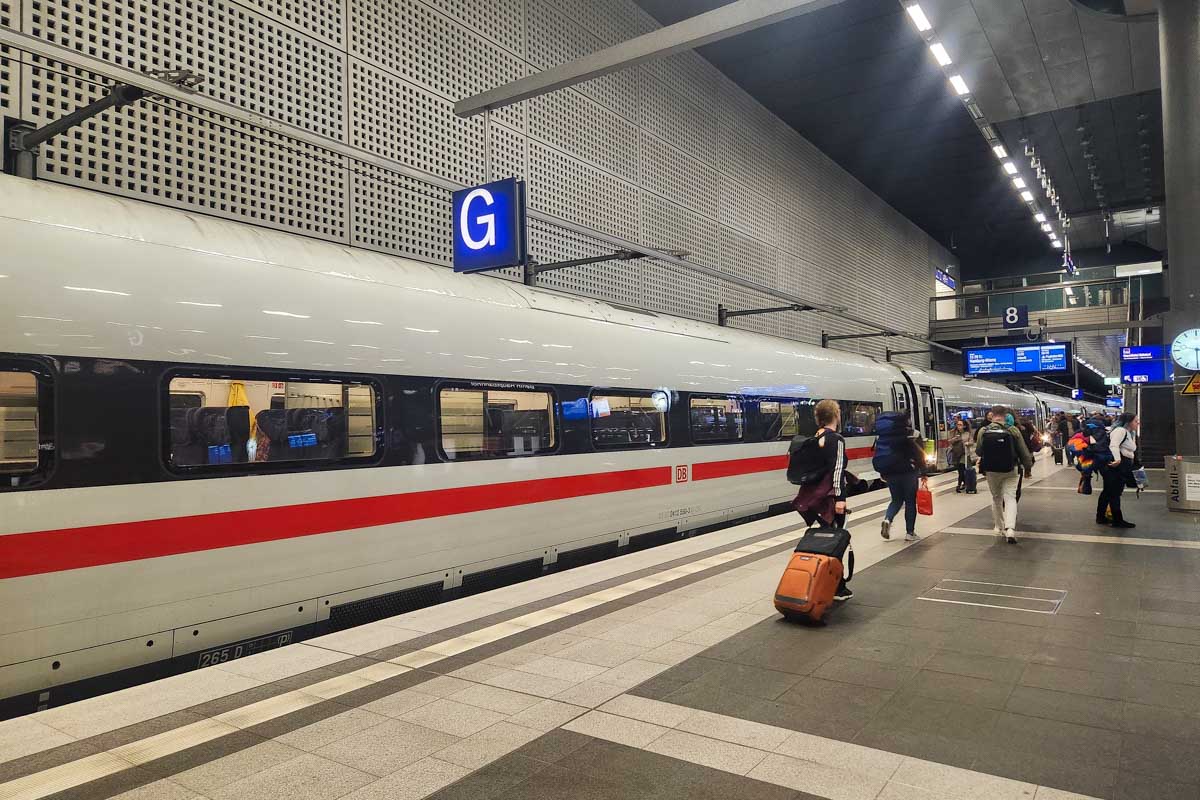
- Most Common: Any crowded area, like train stations or busy plazas
- How it works: Scammers create a distraction that draws your attention so an accomplice can pickpocket you.
- How to avoid it: Ignore distractions and keep walking. Keep valuables secure and always zipped away.
Distraction scams are incredibly common across Europe and come in many forms, but the goal is always the same: to shift your attention just long enough for a pickpocket to strike. These scams often happen in crowded places like train stations, metros, busy plazas, or outside popular landmarks.
Some classic distraction techniques include someone bumping into you “by accident,” dropping coins or spilling something nearby, a staged loud argument, or even a child asking for help or money. Sometimes, someone will greet you as though they know you and rely on the fact that you’ll probably be too polite to walk away! Then, while your attention is focused on what seems like an innocent or urgent situation, someone else is likely reaching into your bag or pocket.
One variation I experienced personally in Paris involved the “gold ring” scam. A woman in front of me bent down, held up a ring, and asked if I had dropped it. I instantly recognized the setup, so I gripped my purse tightly and walked away. But of course, most people’s instinct would be to check their hands or pockets, which makes them vulnerable.
To protect yourself, always stay aware of your surroundings. Keep your valuables zipped away in a crossbody or anti-theft bag worn in front of your body. If a stranger approaches you, grab your bag tightly and trust your gut. If something feels “off” or overly dramatic, it probably is, so just keep moving and don’t engage.
5. Taxi scams
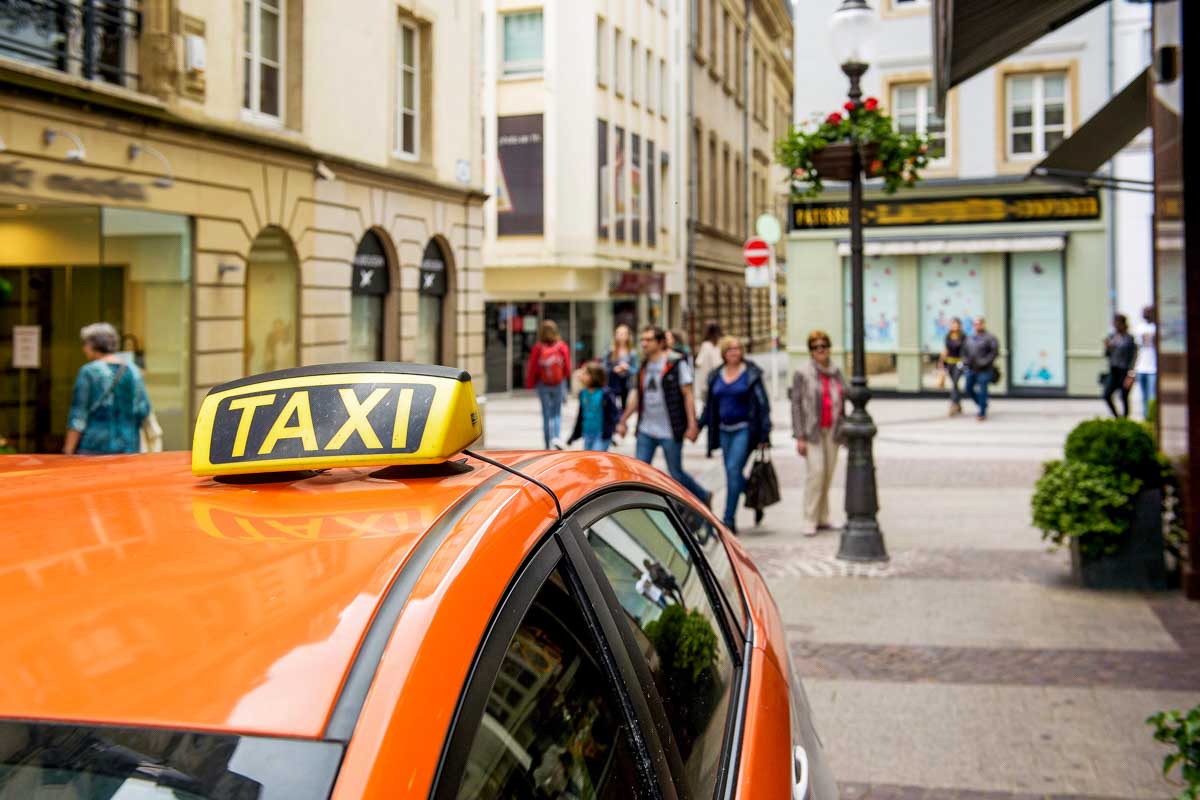
- Most Common: Czech Republic, Hungary, Italy
- How it works: Drivers might take longer routes, overcharge tourists, or pretend they don’t have change.
- How to avoid it: Only use registered taxis and negotiate the price beforehand, OR use rideshare apps like Uber or Bolt
Taxi scams are common all over the world, and thankfully, rideshare apps like Uber and Bolt make them easier to avoid these days. But you can’t use these apps everywhere, so it’s still worth being aware of other ways to avoid getting ripped off.
Tourists often fall victim to inflated fares, rigged meters, or drivers claiming they don’t have change for large bills. Some drivers also take unnecessarily long routes to run up the fare, assuming that you won’t know the difference.
One way to protect yourself is to ask your hotel receptionist about the average fare to your destination before getting in a taxi. Then, ask the driver to use the meter and track your route using Google Maps to ensure they’re not taking a detour. It’s also smart to carry smaller bills, so you don’t have to rely on the driver for change.
We learned this the hard way in Prague. After a night out, we jumped into the first taxi we saw without checking anything. When we arrived at our hotel, the driver charged us nearly three times what the ride should have cost. Now, we always book rides through an app or ask for the price in advance.
But just a quick note on that—if an Uber or Bolt driver ever asks you to cancel the trip and pay them directly, this is a scam. There was a whole group of drivers doing this outside the Therme Spa in Bucharest, but we refused to go with them and kept requesting new trips until we found an honest driver.
6. ATM skimmers
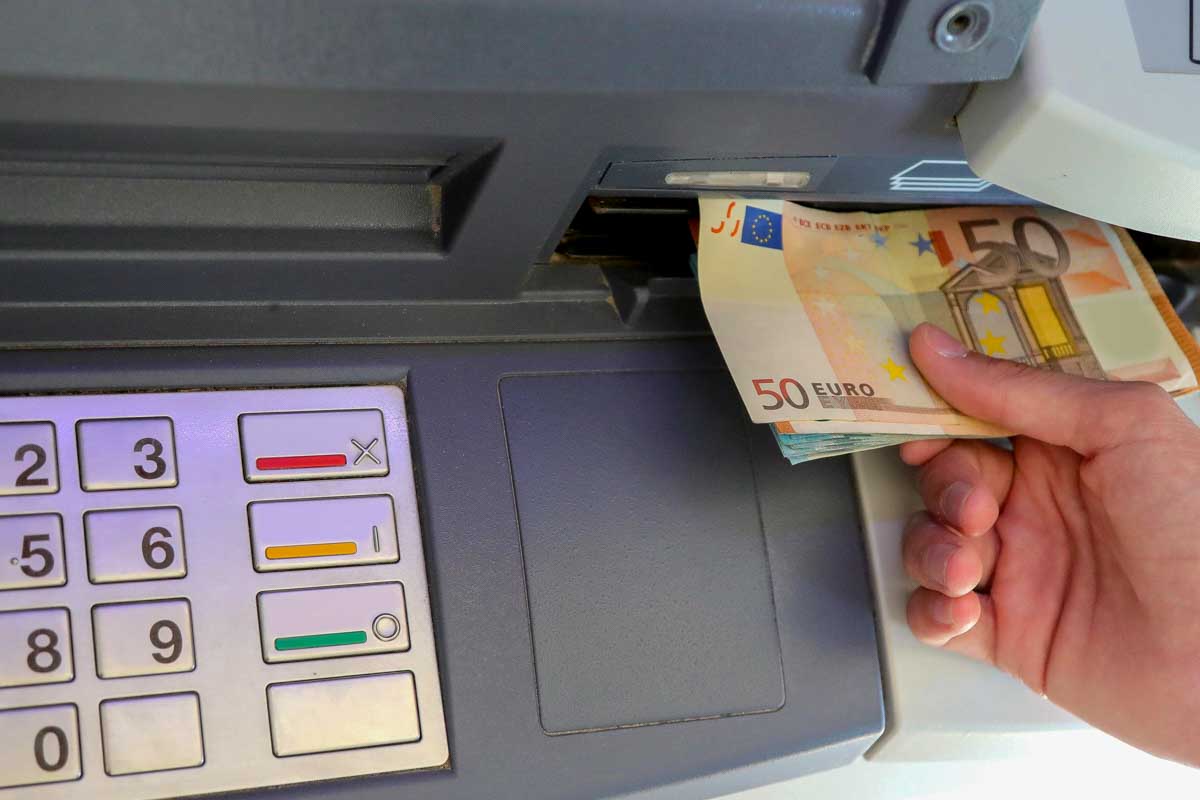
- Most Common: All over Europe
- How it works: Criminals tamper with ATMs to steal your card details.
- How to avoid it: Use ATMs inside banks, always cover your PIN, and never accept help from a stranger at an ATM.
ATM skimming is a particularly sneaky scam that happens all over Europe. Scammers tamper with ATM machines by installing hidden devices that capture your card information and PIN. Once they have your details, they can drain your bank account or clone your card.
The best way to avoid falling victim to this is to use ATMs located inside bank branches because these machines are far less likely to be tampered with. You should also inspect the ATM closely before inserting your card. Signs that a machine has been tampered with include glue residue, misaligned parts, or anything that feels loose.
Be cautious of people standing too close to you or anyone offering unsolicited help. Remember, there’s no good reason to approach a stranger at an ATM!
One time in Berlin, I was about to use an ATM, and a man came up to me and said he knew a “trick” to save on fees. I immediately knew something was up and politely declined before walking away to find a safer ATM inside a nearby bank.
Another great safety measure is to enable transaction alerts on your phone. This way, if your card is ever skimmed, you’ll be notified immediately and can take action ASAP.
Some online banking apps even allow you to freeze and unfreeze your card at the tap of a button. I often do this overnight, as scammers often try to drain your account when you’re asleep, banking on the fact that you won’t realize anything is wrong until the morning!
7. The fake police scam
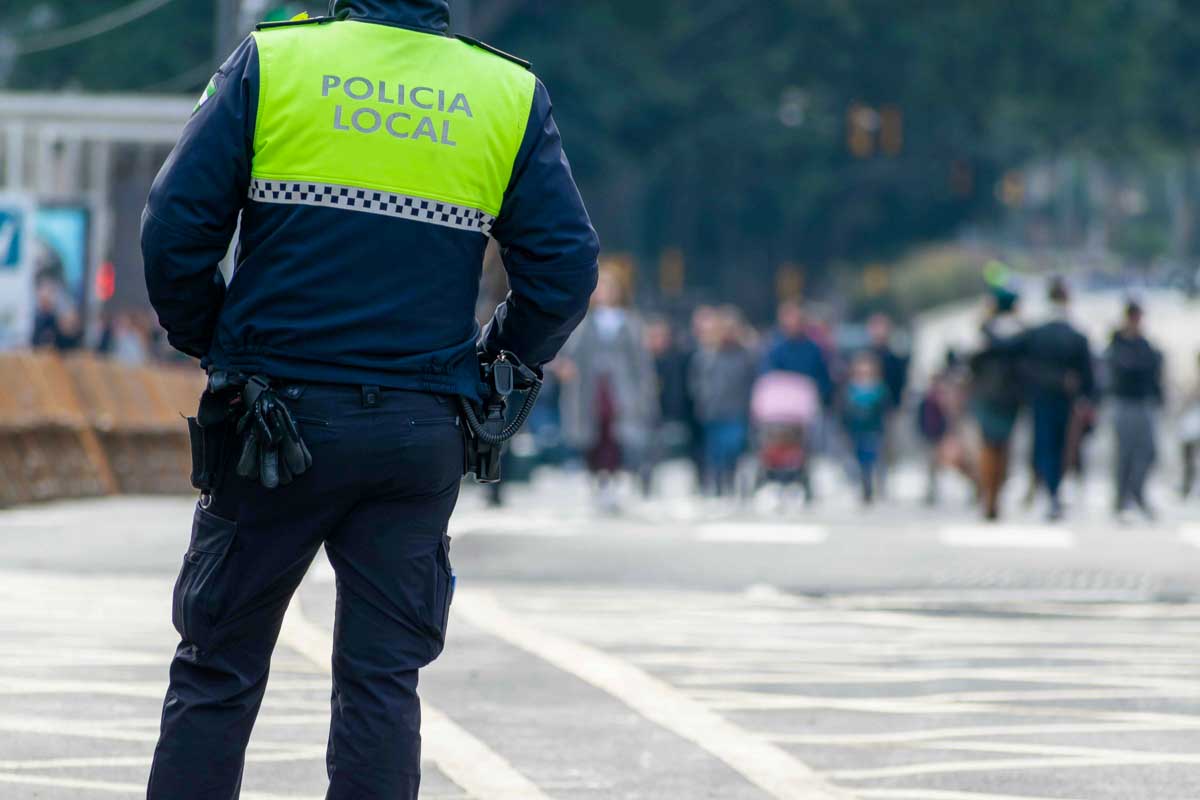
- Common in: Spain, Italy, Romania, Czech Republic
- How it works: Fake police officers accuse you of doing something wrong and demand to see your passport, wallet, or cash. Before you know it, they’ve taken your valuables and disappeared.
- How to avoid it: Ask to see proper identification and call the local police to confirm their identity. Never hand your valuables over to strangers.
We find this scam especially unsettling because it plays on authority. Here’s how it works: someone posing as a police officer approaches you, often speaking in English, and accuses you of being involved in illegal activity, such as using counterfeit money or buying fake goods.
Often, these fake officers will show you a police badge that often looks very real, and demand to check your cash or valuables to see if they’re real. Once they’ve got hold of them, they will steal them.
Resisting this scam might sound a bit scary. After all, who wants to risk getting into an argument with a police officer? But don’t worry, there is zero chance that these people legitimately work for a law enforcement agency. Remember: real police officers don’t randomly stop tourists and ask to see their cash or valuables!
If someone claiming to be a police officer approaches you in this way, do not hand anything over. I have found it’s best not to engage and just walk away, but if you’re unsure of what to do, then you can call the local police station to check the legitimacy of the officer. You can also suggest walking together to the nearest police station to sort things out. Remember, these people do not want to be caught impersonating police officers, so this should send them running in the other direction!
8. The “let me take your photo” scam
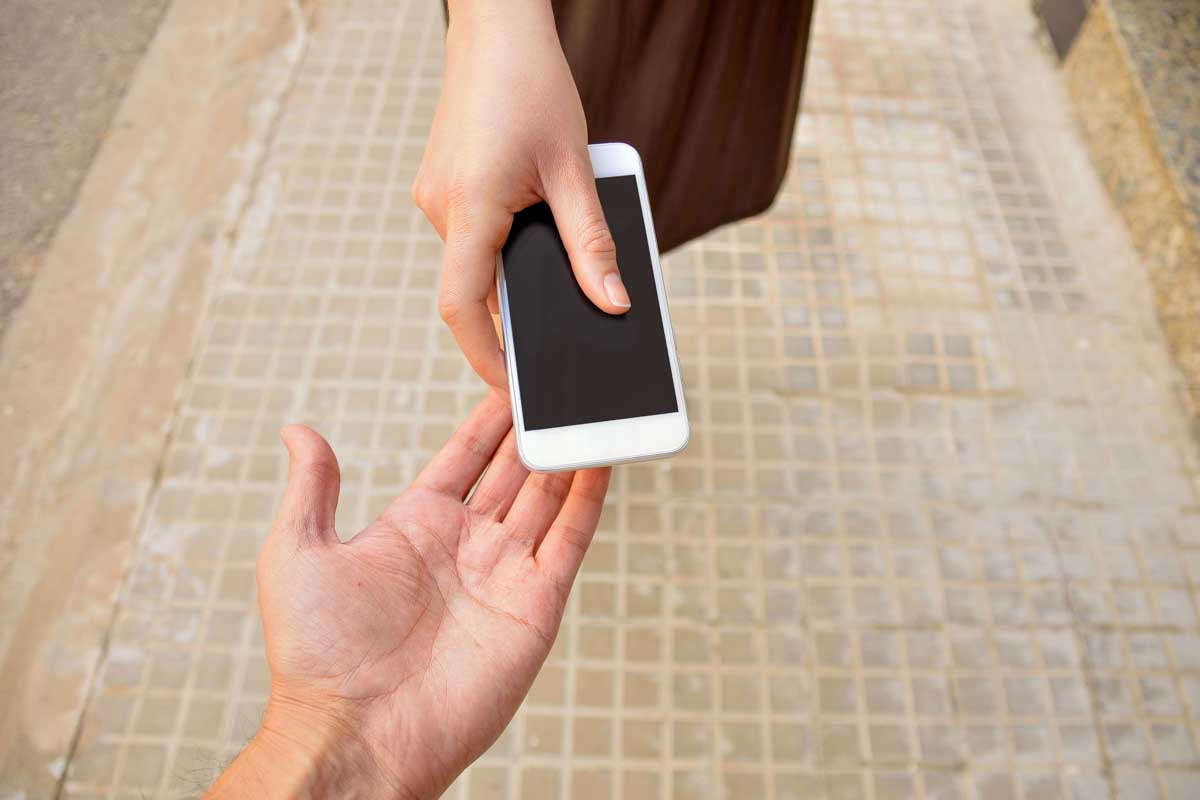
- Common in: France, Italy, Spain, Czech Republic
- How it works: A stranger offers to take a photo for you. Once they have your phone/camera, they either demand money to return it or run off with it.
- How to avoid it: Ask another tourist for a photo, or use a selfie stick/tripod if you’re travelling solo.
This scam tends to happen at popular photo spots near famous landmarks, such as the Eiffel Tower, the Colosseum, or the Charles Bridge. A friendly-looking stranger will approach and offer to take a photo of you and your travel companions. It sounds helpful, especially if you’re trying to get everyone in the shot! But once they have your phone or camera, one of two things often happens: they either run off with it, or they hold it “hostage” and demand payment to give it back.
This scam works because it plays on politeness and convenience. Most tourists aren’t expecting someone offering help to have bad intentions. To avoid falling for it, never hand your phone or camera to a stranger who offers first. If you do want a photo, look for another tourist who’s also taking pictures and ask them instead. Tourists are far less likely to run off with your gear, and it’s a quick way to help each other out.
If you’re traveling solo, it’s worth bringing a small tripod or a selfie stick. There are also Bluetooth clickers and phone stands that make it easier to take your own photos without relying on anyone else.
The bottom line? Stay in control of your valuables, especially your phone. If someone seems overly eager to “help,” it’s best to politely decline and keep moving.
9. The overpriced restaurant scam
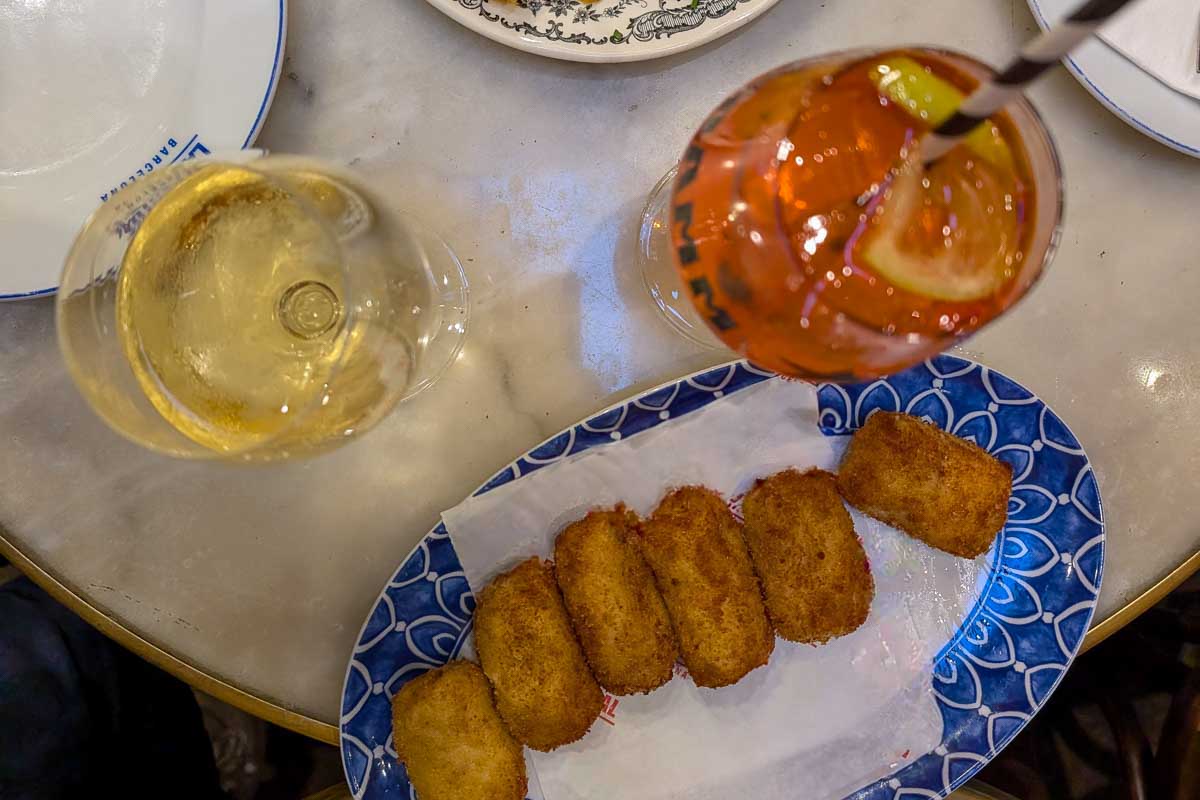
- Common in: Italy, Greece, Hungary
- How it works: The menu has no prices on it, and the restaurant overcharges you at the end of the meal, OR they charge you for “extras” you thought were free
- How to avoid it: Always ask about prices before ordering. If a waiter brings food/drinks to the table that you didn’t order, clarify whether it’s free or chargeable before touching it.
This scam is especially frustrating because it often happens when you’re just trying to enjoy a nice meal. In tourist-heavy cities like Venice, Athens, and Budapest, some restaurants take advantage of unsuspecting travelers by charging outrageously high prices for basic items or sneaking in hidden fees. The problem with this scam is that by the time you’ve realized what’s happened, it’s usually too late!
Often, what happens is that waiters will bring things to the table that you didn’t order, such as bread, water, or appetizers. Don’t assume that these extras are free, as they will often charge for them—and most of the time, they’ll overcharge! If in doubt, ask before tucking in. Other times, they’ll add a ridiculously high service fee to the bill without any warning.
When we were in Venice, our waiter brought water and breadsticks to our table after we ordered. This often happens in Canada, and so we assumed that they were complimentary, as they would be back home. However, once the bill came, we had been charged €10 for the bread and another €7 for the water, which is pretty outrageous for such basic items.
The best way to avoid this scam is by checking out a place on Google or TripAdvisor before you sit down! By sticking to restaurants with lots of good reviews, you can easily avoid this scam altogether.
10. The fake beggar scam
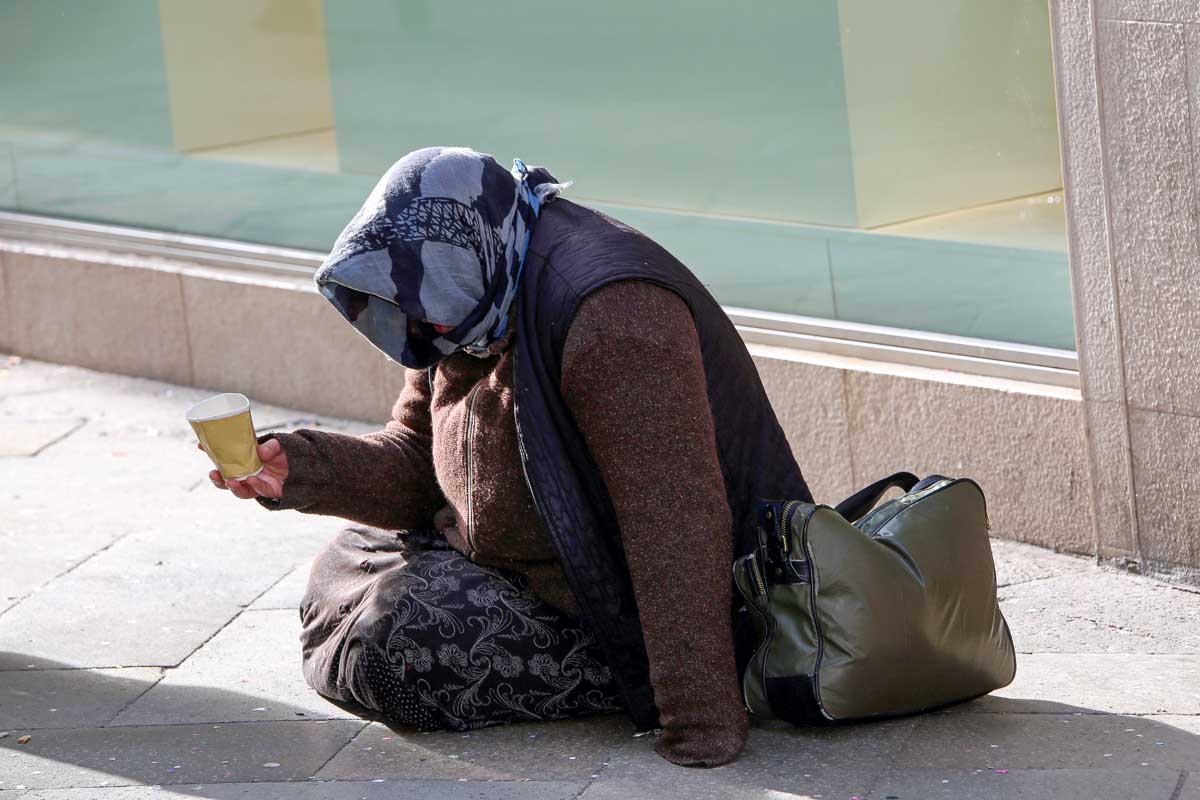
- Common in: All over Europe
- How it works: Beggars purposely appear injured, disabled, or in distress and ask you for money or other goods to “help”.
- How to avoid it: Ignore them. If you want to help, donate to legitimate charities instead.
It’s important to be prepared for the fake beggar scam ahead of time because it’s emotionally manipulative and pulls on your heartstrings. Someone will approach you claiming to be homeless or in need to gain your sympathy, but in reality, they’re part of a larger organized crime operation that relies on tourists’ guilt and kindness to make money.
Sometimes, these scammers will ask for cash, but other times they attempt to seem more legit by asking you to purchase them food or supplies from a nearby store. Then, once you have left, they return the items you purchased to the store for cash and split the profits with the owner.
These scammers know how to hit you where it hurts! Many of them will hold a baby and claim they need money to feed their child, but the baby is usually fake. And even if they are accompanied by a real child, giving them money only fuels the cycle of exploitation.
The same goes for scammers who use animals to gain your sympathy. We’ve seen scammers with puppies and kittens, but the sad reality is that these animals are usually drugged. Donating money only encourages scammers to continue abusing them.
Trust me, I know how difficult it is to see people or animals who appear to be suffering and not want to help. But remember, the best way to do this is to research and donate to verified local charities or shelters, where your support will go toward real aid and long-term solutions.
Related Read: Avoiding scams is one part of a stress-free trip—knowing when to travel is another! Read our guide to the best time to visit Europe here to make the most of your adventure.
How to Outsmart Scammers
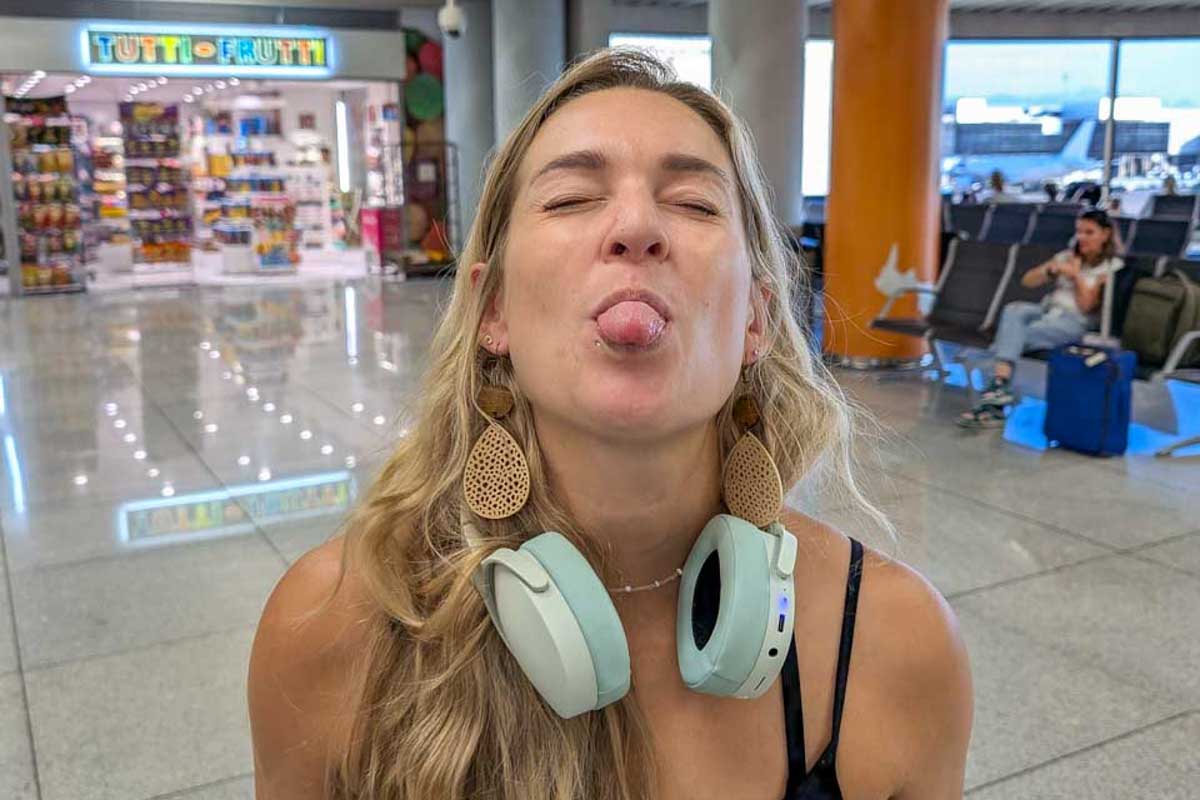
Knowing what to expect is one of the best ways to protect yourself while traveling! These common scams may seem obvious when you’re reading about them, but in the moment, they can catch you off guard.
By learning how they work and recognizing the red flags, you’ll be able to stay calm and in control. A little preparation goes a long way, so we’ve compiled our top tips to help you enjoy your trip without falling into a scammer’s trap.
Protect your stuff
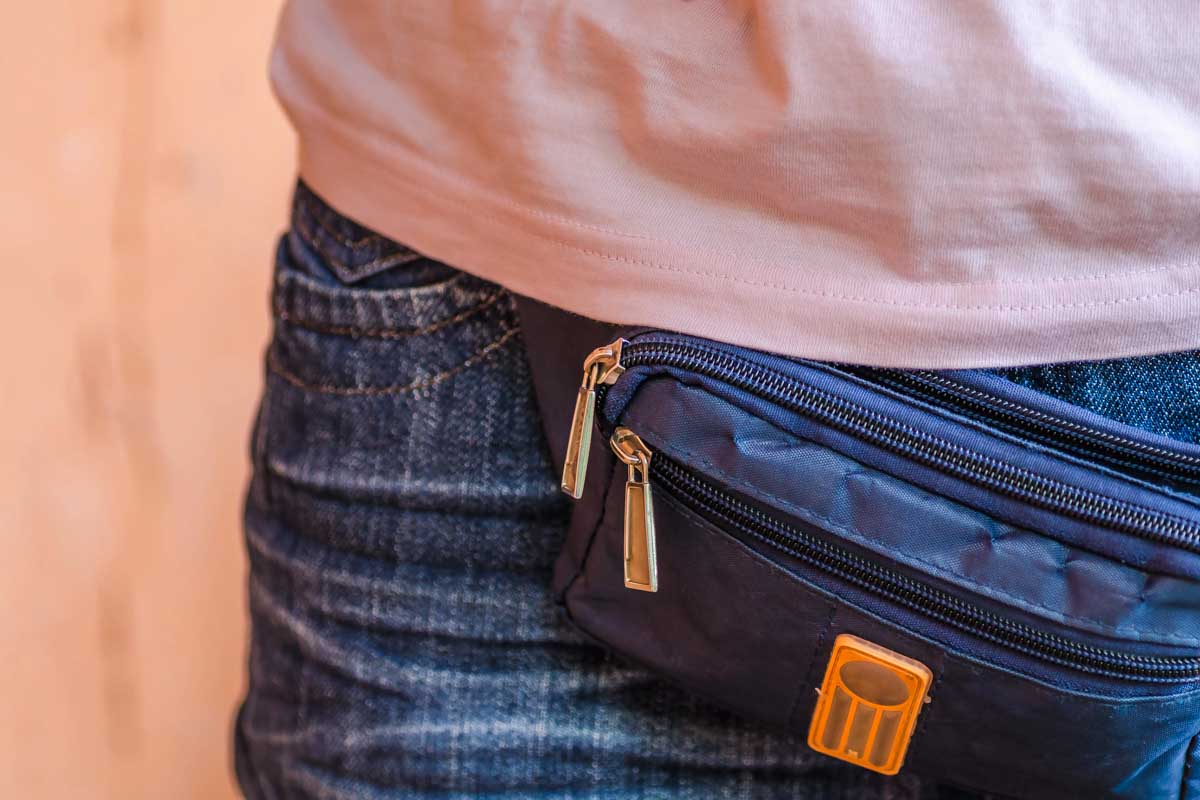
Pickpockets operate in every major European city. Barcelona is particularly known for its pickpocket problem, but you should always exercise caution, especially around tourist hotspots and on public transport.
Don’t worry, we’re not saying you need to be paranoid! However, you do need to stay alert. Taking a few simple steps to protect yourself can dramatically reduce your risk of becoming a target.
Honestly, one of the easiest ways to protect yourself is by keeping your valuables in front of you. Wearing a money belt or crossbody bag on your front makes it much more difficult for thieves to get to your valuables. Never put your phone or wallet in your back pocket, either!
I know that sometimes you need a backpack when you’re out for a long day, but make sure to swing it around to your front when you’re in a busy area. When I toured the Colosseum in Rome, I had my backpack on and later realized someone had unzipped it without me noticing. Thankfully, I hadn’t stored anything valuable in it, but that moment really made me rethink how I carry my stuff in crowded areas!
We also avoid carrying all of our cash and credit cards in one place. We just bring what we need for the day and leave the rest in our hotel safe.
And finally, don’t leave your phone sitting out on the table at a café or restaurant. It only takes a second for someone to swipe it when you’re not paying attention!
Watch for red flags
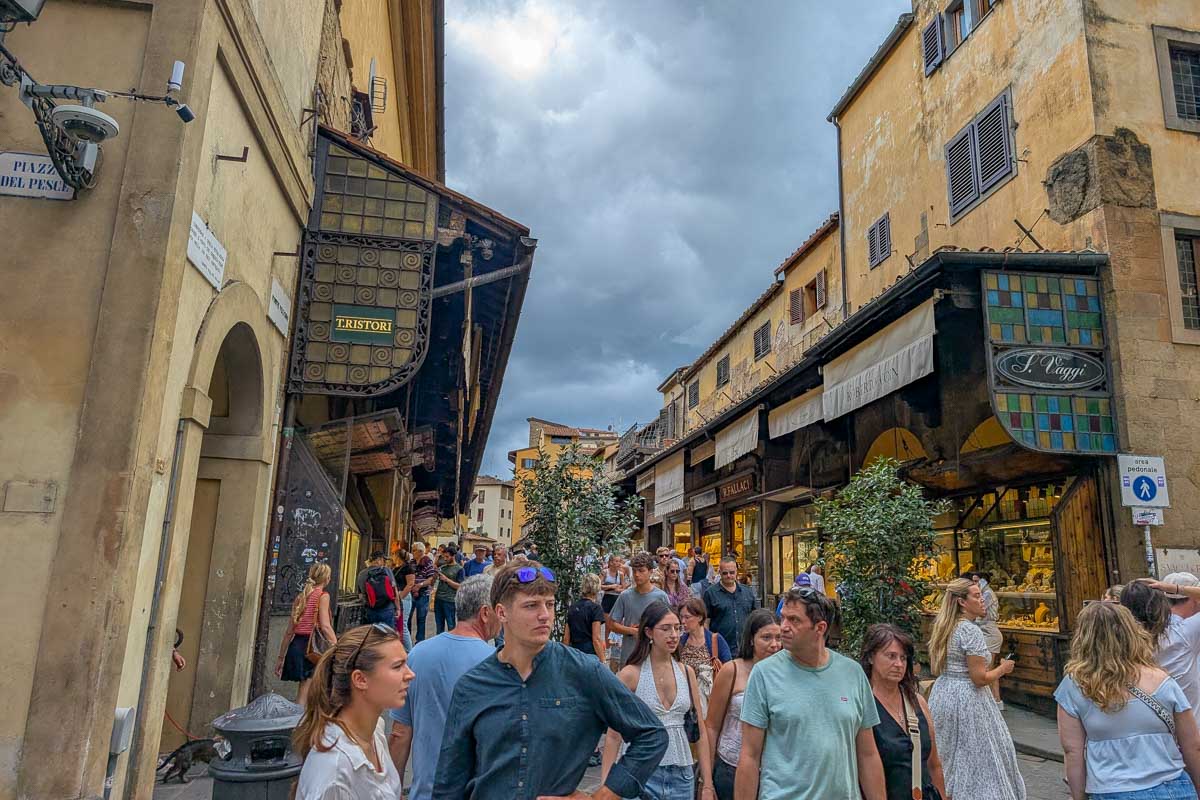
One of the best ways to avoid scams while traveling is simply staying alert. Being aware of your surroundings helps you spot suspicious behavior early, giving you the chance to walk away before anything happens.
I may sound cynical, but it really does pay to be cautious if someone is overly friendly or offers unsolicited help, like assisting with your luggage, showing you how to use an ATM, or guiding you somewhere.
Pay attention to crowds forming suddenly or unexpected distractions, like loud arguments, dropped coins, or someone bumping into you. These are often orchestrated to draw your attention away while someone else picks your pocket.
If someone is standing too close to you in line or on public transport, protect your belongings and create space if you can. And when prices aren’t listed, always ask first.
Finally, trust your gut. If it seems as though someone is playing on your guilt or sympathy, then walk away. The same goes if someone is rushing you to pay for something, or offering you a deal that seems too good to be true! Scammers thrive on confusion and hesitation, so staying calm and cautious goes a long way.
Blend in & stay low-key
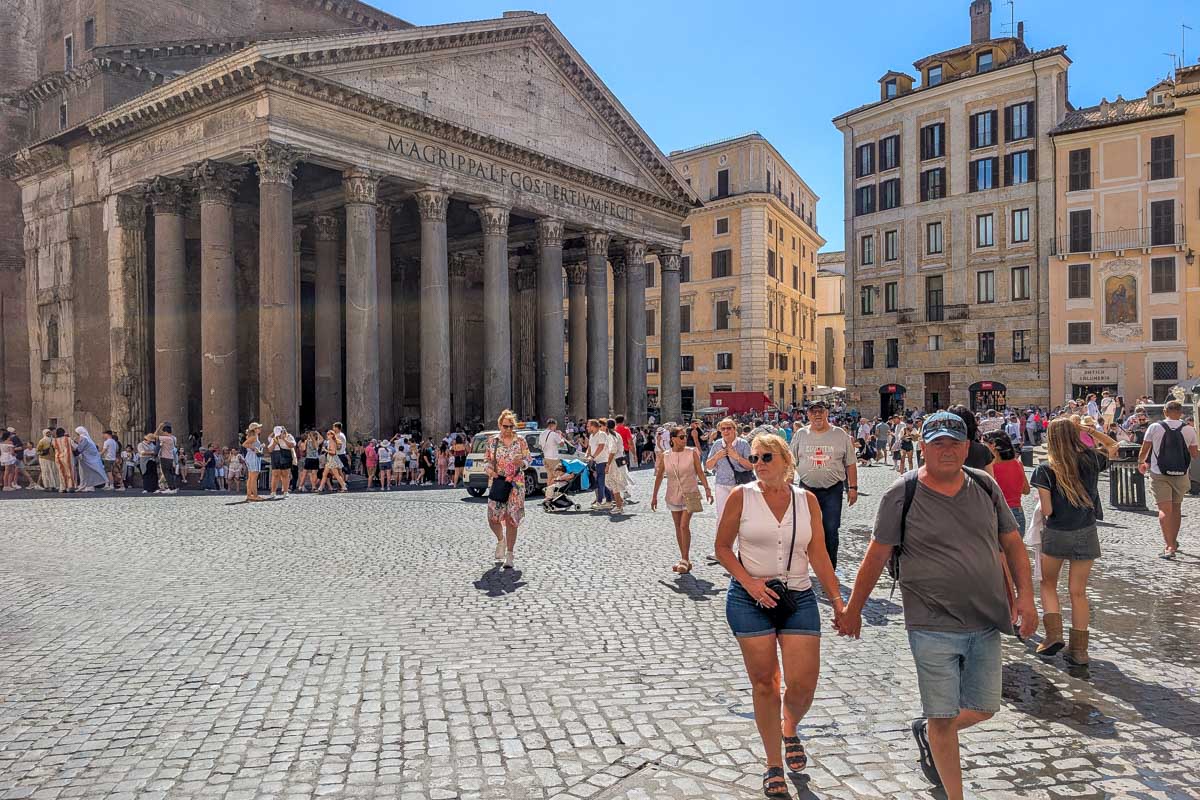
Honestly, one of the best things that you can do to stay safe as a tourist is to not look too much like a tourist! There’s no need to completely change your style while traveling, but blending in with locals can help you avoid drawing unwanted attention. If you look like a wealthy tourist, you are much more likely to become a target.
You should also be discreet when using maps—and yes, that includes maps on your phone! It’s best to duck into a shop and do it, rather than stopping in the middle of a busy street. The same goes for taking out money or snapping photos with expensive equipment.
Finally, be confident! Walk with purpose, even if you’re not entirely sure where you’re going. People who look confused and hesitant are easier targets—thieves can spot that energy a mile away!
Book everything through trusted sources
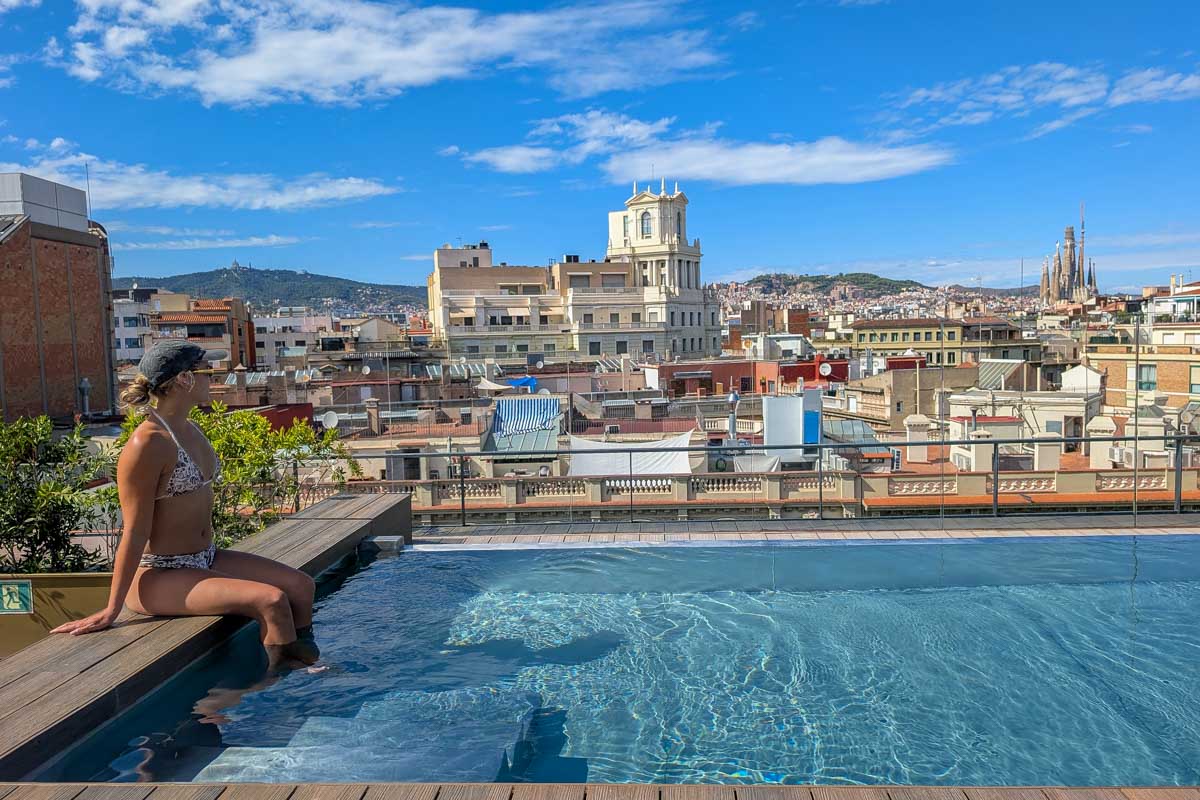
One of the best ways to avoid scams while traveling is to book everything through reputable websites, from tours to train tickets. Avoid using your credit card on random websites or buying from strangers on the street, and instead use well-known platforms to protect your money and your peace of mind.
We always use Viator for tours and activities. They’re a huge company and they offer thousands of tours all over the world! It’s easy to compare experiences and check reviews to ensure it’s a legitimate tour. They have a lowest price guarantee, too, and you often enjoy free cancellation up to 24 hours before your tour begins.
For accommodation, we rely on Booking.com, because again, you can see verified guest reviews and filter by location, budget, and rating. It’s much safer than booking through unfamiliar sites or random listings.
When it comes to transport, we use Omio.com to book buses and trains across Europe. It’s easy to navigate and helps avoid any language confusion at the station.
The best part about using these platforms is that if anything goes wrong, you can reach out to the site’s customer service for help. That’s much easier (and safer) than trying to track down a random vendor for a refund!
Be mindful of your luggage
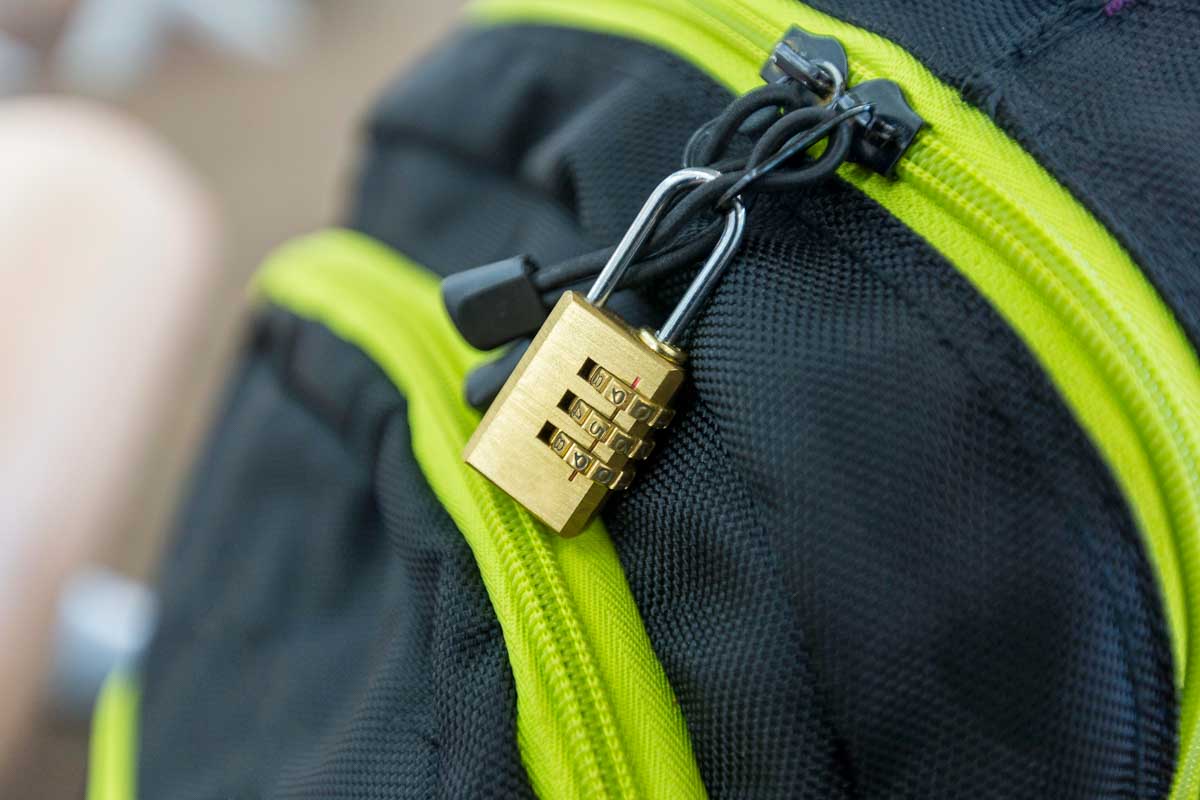
When you’re traveling, it’s important to keep your most valuable and essential items in your carry-on bag, not your checked luggage. Even if your suitcase is locked, baggage handlers or airport staff can still access it. Unfortunately, theft from checked bags does happen.
A friend of mine actually learned this the hard way. She was flying home from Europe last summer and packed some of her jewelry in her checked suitcase. When she got home, a few pieces were missing. She never thought that kind of thing would happen, but luckily, she had travel insurance and was able to get reimbursed.
Besides theft, there’s always the risk of airlines losing your luggage, which is another reason to keep passports, electronics, medications, and other irreplaceable items with you at all times.
If you’re leaving your luggage at your hotel for the day after checking out, always lock your bags before handing them over for storage. Most hotels have safe storage, but it’s still smart to take precautions. If we’re ever in a situation where we can’t use hotel storage, we use the Bounce app to find nearby storage instead, and it’s easy to check prices and reviews beforehand.
Related Read: Once you’ve learned how to stay safe, it’s time to plan where to go next. Don’t miss our list of the 33 best places to visit in Europe here for incredible destinations across the continent.
Our Safe Travel Tips
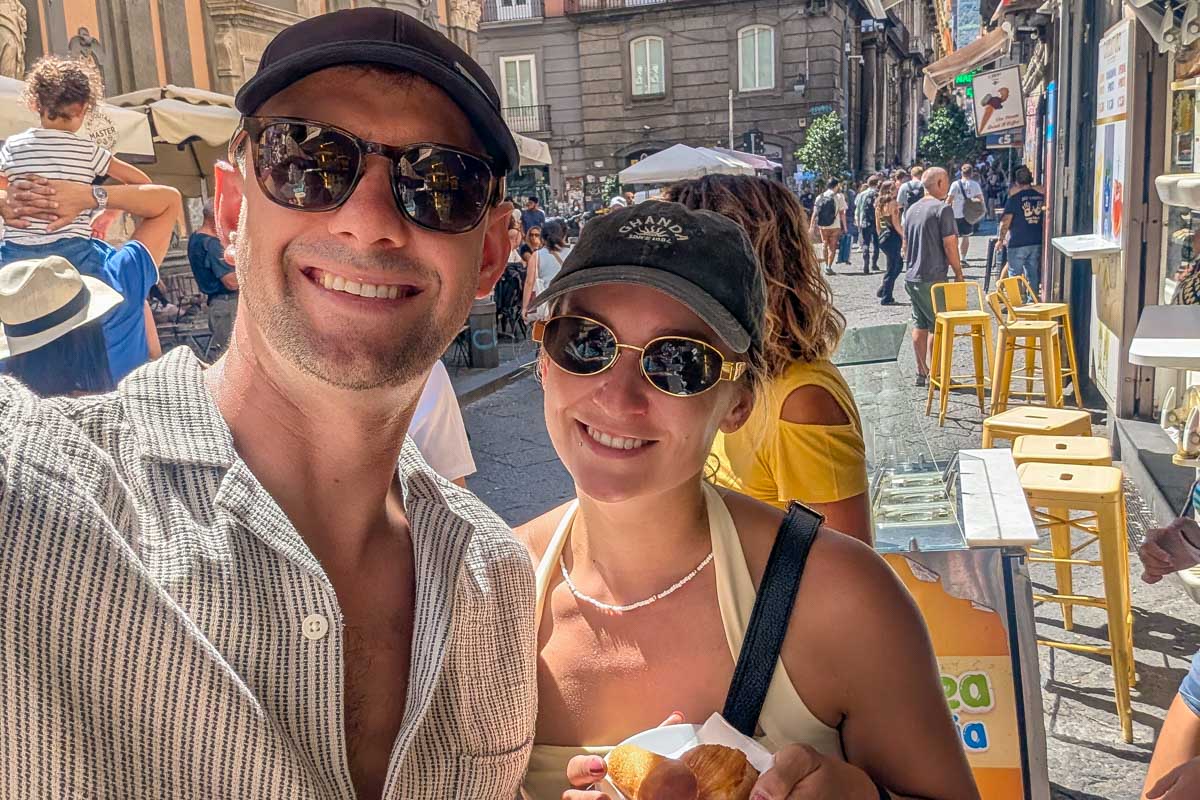
Traveling is so much better when you feel confident and prepared. These safe travel tips are designed to help protect and prepare you. We’ve already covered how to avoid scams, but by following the advice below, you’ll be much less likely to run into trouble in the first place. We promise, you don’t need to be paranoid, but staying smart and aware can help to ensure your trip is smooth and hassle-free.
Pick your accommodation carefully

Take the time to research your hotel before booking. Always double-check which neighborhood your hotel is in and make sure that it has a good reputation! We use Booking.com to find accommodation because it’s so easy to read reviews and see where the hotel is on the map.
Once you’ve checked in, make sure the room door locks properly, and if you want extra peace of mind, consider packing a portable door lock. You should also choose a hotel that offers a safe in the room so that you can securely store your valuables. It’s easy to check if there’s a safe on Booking.com—it’s usually listed below the room type.
And one last tip: if at any point you receive a phone call from the front desk asking to confirm payment details, do not provide them. Hang up and call the front desk directly!
Know essential emergency contacts
Knowing essential emergency contacts can make a huge difference if something unexpected happens while you’re abroad. In most of Europe, 112 is the universal emergency number, which you can call for police, fire, or medical help. In the UK and Ireland, it’s 999.
It’s also a good idea to learn how to say simple phrases like “help” or “I need the police” in the local language, or have Google Translate downloaded on your phone for quick communication in a pinch.
Before your trip, check your government’s travel website for any alerts or warnings about your destination. Many countries also allow you to register your travel plans, so they can contact you in case of a natural disaster, political unrest, or other emergencies.
Buy travel insurance
Buying travel insurance is one of the smartest things you can do before any trip. It might seem like an extra cost, but if something goes wrong, you’ll be so glad to have it. This is especially important if you’re planning to do adventure activities like hiking, biking, or skiing, where the risk of injury is higher!
We personally use SafetyWing for our travel insurance. They offer affordable monthly rates, which is perfect if you travel often, and their policies cover medical emergencies and stolen belongings, including essentials like your wallet or passport. You can even add protection for electronics, which gives extra peace of mind if you’re carrying a laptop or camera.
Stay aware at night
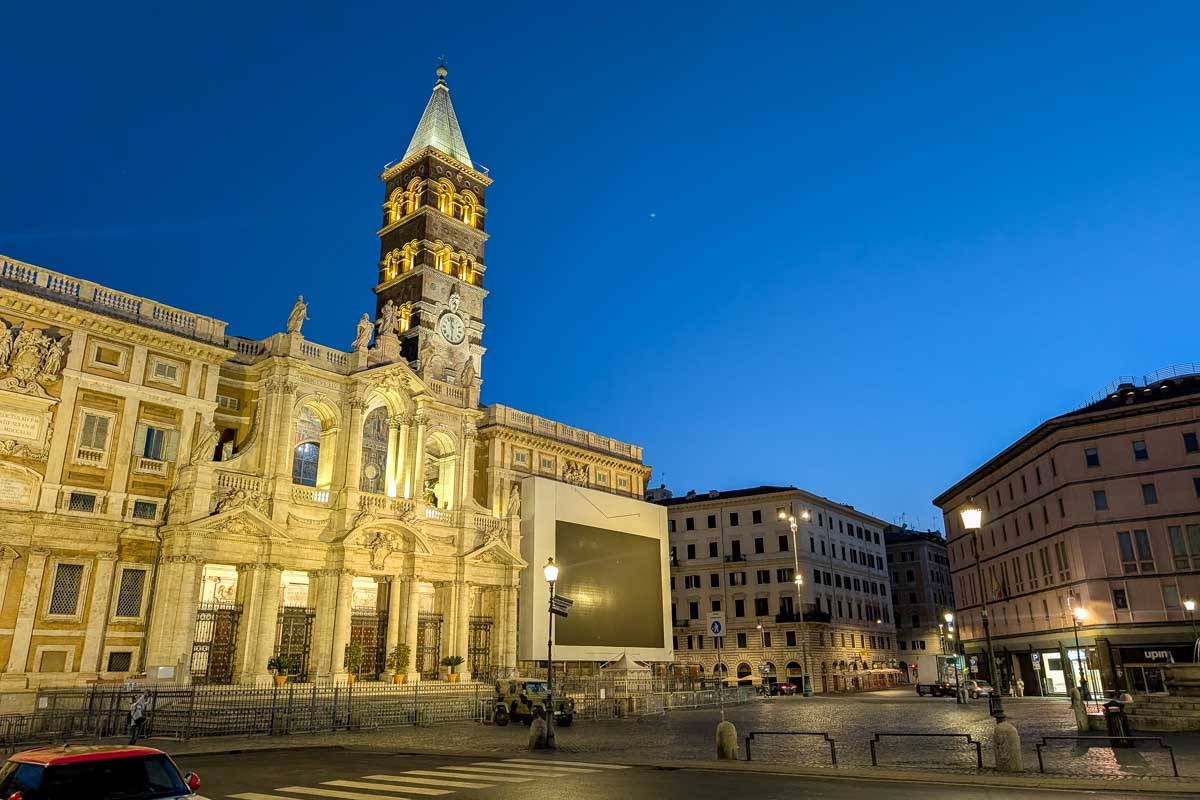
It’s extra important to be alert at night when you’re traveling. Try to stick to well-lit, busy areas, and avoid wandering down quiet or unfamiliar streets, especially if you’re alone.
If you’re heading out for dinner or drinks, keep an eye on your drink at all times, and never accept a drink from a stranger. Drink spiking is a real risk in some places, and it’s just not worth taking the chance.
When we use public transport at night, we always avoid getting on an empty train car. Instead, we opt for one with other passengers and stay near the conductor if possible.
A bit of caution and common sense go a long way when exploring after dark. You don’t have to miss out on the fun, but do make sure to stay alert and trust your instincts.
Use reliable transport
Using reliable transport is one of the best ways to stay safe while traveling. Always avoid unofficial taxis, especially ones without proper signage or meters.
Instead, use registered cabs or ride-hailing apps like Uber, Bolt, or Free Now. They let you track your ride, share your location with a friend, and confirm the price up front. Just make sure that the license plate and driver match what’s shown in the app before you get in the vehicle.
If you’re planning to rent a car, go through a trustworthy company. We always use Discover Cars because it lets us compare prices, check reviews, and find reputable providers. It’s a great way to avoid hidden fees or dodgy local agencies. We’ve never had an issue while using them!
Keep important documents safe
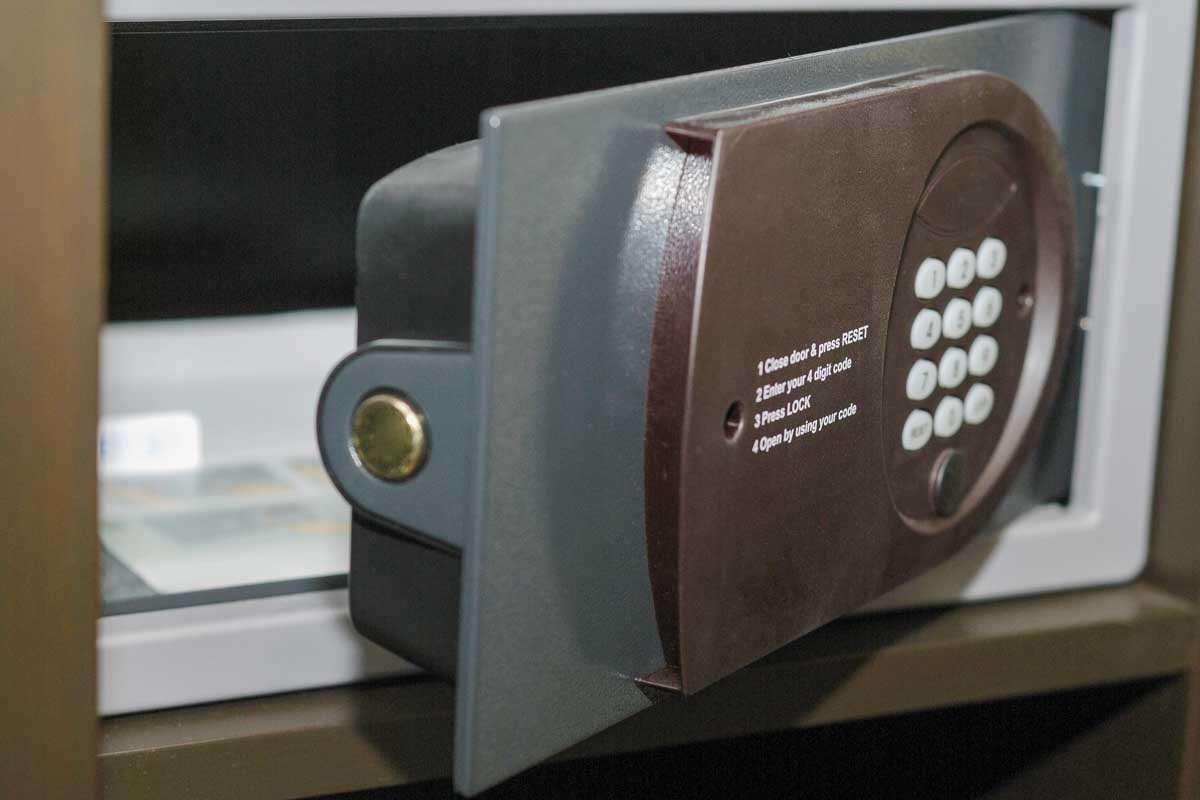
Keeping your travel documents safe is one of the smartest things you can do on any trip. We always make physical copies of important documents before we go, and keep them in different spots. This way, if you do get robbed, you’ll still have backup copies of your documents available.
We also recommend taking photos or scans of your documents and saving them to the cloud or emailing them to yourself. It’s a quick backup that can really come in handy!
At the hotel, use the in-room safe for your passport and backup credit cards. I personally never take my passport out unless absolutely necessary. You can usually use a driver’s license for ID if you need it!
When you’re on the move and need to have your passport with you, keep it in a money belt or a hidden zippered pocket. A little prep goes a long way in avoiding a major headache.
Utilize technology
We live in the digital age, so take advantage of that fact! Technology can be a huge help when it comes to staying safe while traveling.
Before your trip, download offline versions of Google Maps and Google Translate so you can navigate and communicate even without Wi-Fi or cell service. This is especially useful in areas where the signal is unreliable or data is expensive.
Set up live transaction alerts with your bank or credit card provider, so you’ll be notified immediately if suspicious activity occurs. Many banks also let you set card limits or enable a “travel mode” to help prevent fraud. Oh, and make sure your phone is password-protected because it holds a lot of sensitive information.
There are also travel safety apps like Travel Smart or GeoSure that provide real-time safety tips and alerts specific to your location. These can help you avoid risky areas and stay informed throughout your trip.
What to Do If You Get Scammed
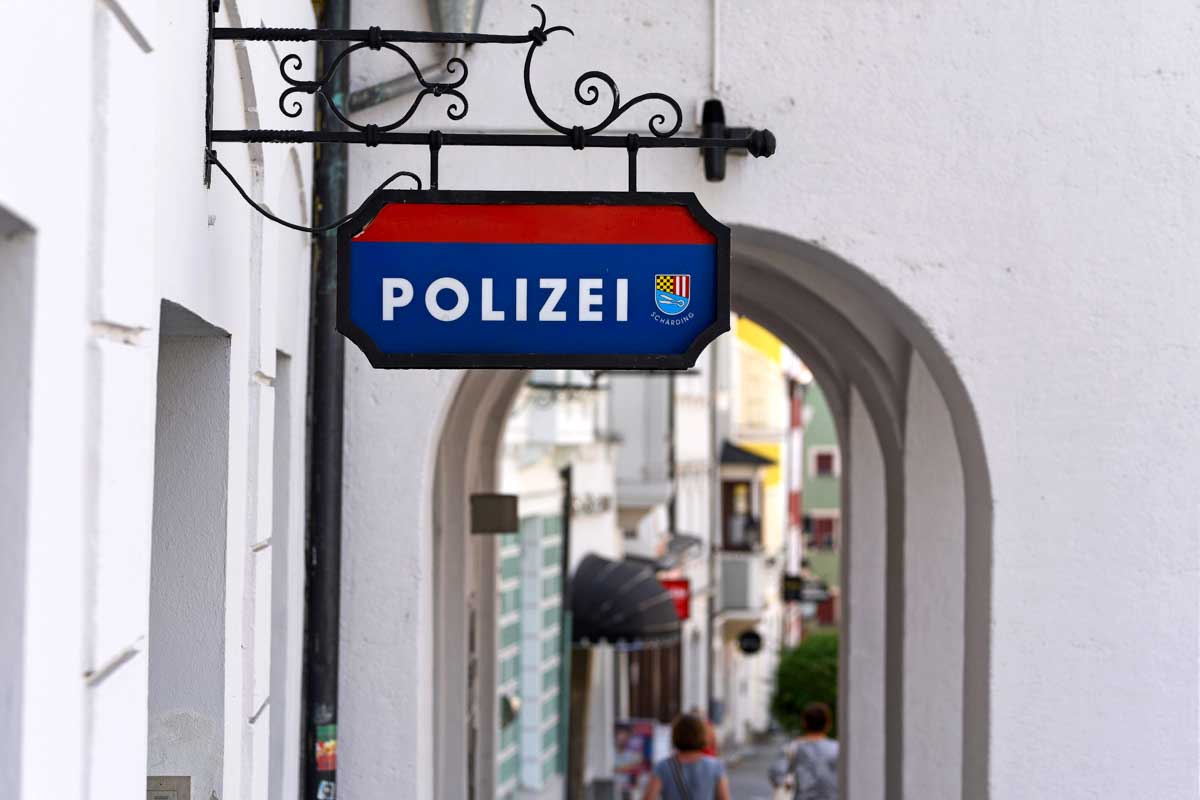
Now, we sincerely hope that you don’t get scammed, but you need to know what happens if you do. It can—and does—happen to even the most experienced and cautious travelers. You need to know how to do damage control afterwards to ensure that one bad experience doesn’t ruin your entire trip. It’s also important to know what to do so that you can make a valid travel insurance claim!
1. Stay calm and remove yourself from the situation
If you realize you’ve been scammed or targeted, your first priority should be your safety. Don’t argue with or try to chase down the scammer, even though it may feel tempting at the time! Many scammers operate as part of a larger criminal organization, and confronting them could escalate the situation or put you at greater risk. It’s really not worth it!
Instead, calmly and quickly remove yourself from the area and get to a safe place, like a café, shop, or police station. Take a few deep breaths and try to stay composed. Scams happen to travelers all the time, even the most experienced ones. Staying calm will help you think clearly and take the next steps to handle the situation.
2. Report it to local authorities
If you’ve been scammed or had something stolen, head to the nearest police station and report it as soon as possible. Many European countries have dedicated tourist police divisions who are trained to handle crimes involving travelers, and they often speak some English.
Even if it feels like a lost cause, filing a report is still worth doing. You’ll need it to file a travel insurance claim later. Having an official police report can make a big difference when it comes to getting reimbursed for stolen items, medical costs, or trip interruptions. Be sure to provide as many details as possible, including time, location, descriptions, and any supporting evidence you happen to have, such as screenshots or receipts.
3. Contact your bank immediately
If you were scammed using your debit or credit card, then you need to contact your bank as soon as possible. This includes an ATM skimmer, a fraudulent charge, or an overcharged restaurant bill.
Most major banks have 24/7 fraud protection services and can help you freeze your card to prevent any further unauthorized use. In many cases, they can reverse the fraudulent charge and issue you a new card quickly. The sooner you report the issue, the better your chances of recovering the lost funds.
Some banks even allow you to temporarily lock your card through their mobile app while you investigate the issue. If you’re traveling long-term, it’s also smart to have at least one backup card stored separately from your main one.
4. Check your travel insurance policy
A lot of people don’t realize that travel insurance often covers theft, fraud, and other losses while abroad! If you’ve been pickpocketed, scammed, or lost a valuable item due to theft, it’s definitely worth checking your policy to see if you’re eligible to make a claim.
Start by reviewing the terms of your coverage. Many policies will reimburse for stolen cash, electronics, and even emergency expenses. To submit a claim, you’ll typically need a copy of the police report, proof of ownership for the stolen items (like a receipt, serial number, or photo), and any documentation related to the incident (such as disputed charges).
File your claim as soon as possible because some providers have strict time limits. If you purchased your policy through a site like SafetyWing, they often have an online claims portal that makes the process easier while you’re still traveling. It’s a game-changer!
5. Warn Other Travelers
One of the most effective ways to prevent scams is to speak up and warn other travelers. Scammers rely on shame to keep their schemes going! They want you to feel too embarrassed to speak out.
If you’ve been scammed, don’t stay quiet. Share your experience on platforms like Google Reviews, Reddit, or Facebook groups. These stories help other people recognize red flags and avoid falling for the same tricks!
When I was in Rome, I was scammed when my taxi driver claimed he didn’t have change for my large bill, and overpaid by about €30. I was so frustrated that I posted about it in a travel Facebook group. Within hours, several other travelers responded, saying they’d had the exact same thing happen at the same taxi stand. It was clear this was a common scam, and by sharing our stories, we were able to warn others before it happened to them.
Related Read: Now that you’re ready to explore worry-free, don’t miss our guide on how to get around Europe safely, smoothly, and without falling for travel scams.
Final Thoughts: Enjoy, But Stay Smart

Traveling through Europe is an incredible way to experience the continent’s history and culture. While scams and safety risks can be a concern, the good news is that with the right knowledge and simple precautions, you can greatly reduce your chances of running into trouble. Staying aware, protecting your belongings, and trusting your instincts will help you stay one step ahead of scammers and pickpockets.
Remember to research your accommodations and tours, keep important documents secure, and use technology to your advantage. Most importantly, don’t let the fear of scams ruin your trip. Now that you’ve read all of our tips to prepare, all you need to do is stay confident and enjoy every moment!
Thanks for reading!
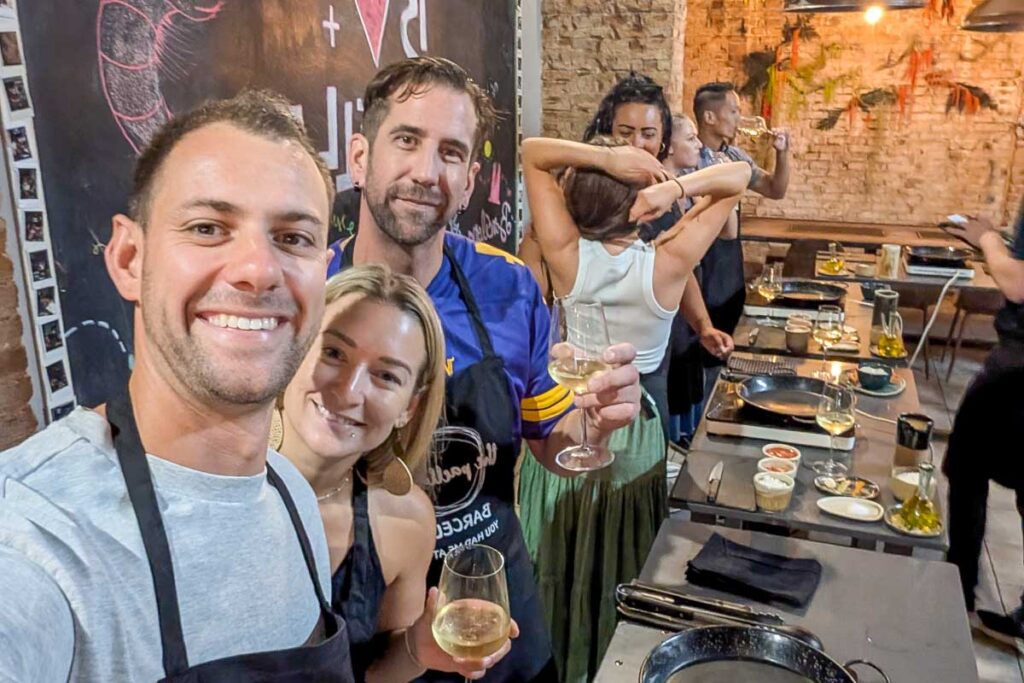
Europe is an incredible destination filled with history, culture, and adventure—and with a little preparation, you can enjoy it all safely and stress-free. Scams might be common in busy tourist spots, but now that you know what to look out for, you’ll be ready to recognize and avoid them with confidence.
Remember, awareness is your best defense! With these tips in mind, you can focus on what really matters—soaking up every café, castle, and cobblestone street this amazing continent has to offer. Before you go, check out our other Europe travel guides here for even more helpful tips, itineraries, and destination inspiration to help you plan your perfect trip. Happy and safe travels!
